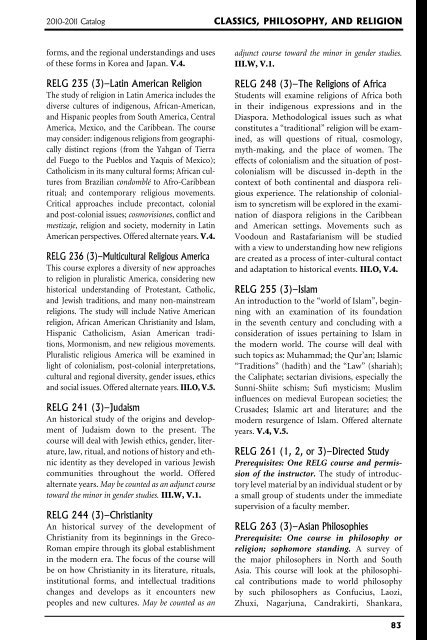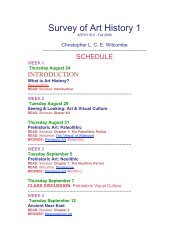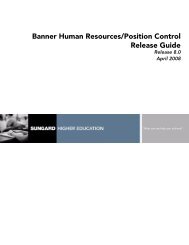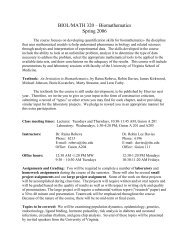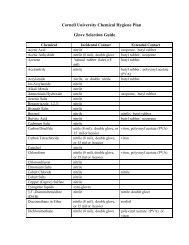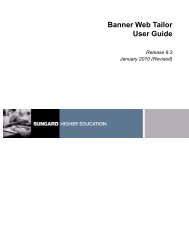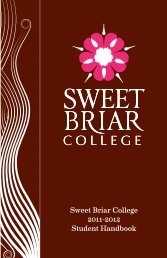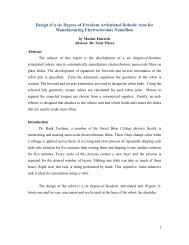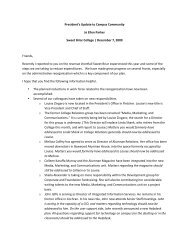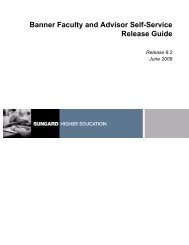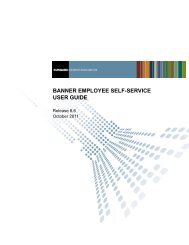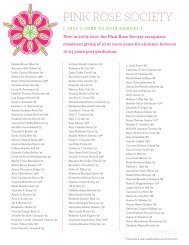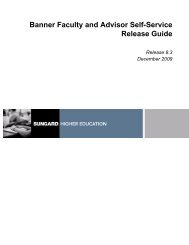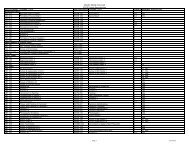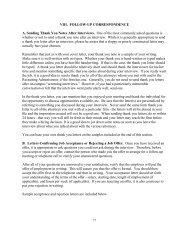Sweet Briar College
Sweet Briar College
Sweet Briar College
- No tags were found...
You also want an ePaper? Increase the reach of your titles
YUMPU automatically turns print PDFs into web optimized ePapers that Google loves.
2010-2011 Catalog forms, and the regional understandings and usesof these forms in Korea and Japan. V.4.The study of religion in Latin America includes thediverse cultures of indigenous, African-American,and Hispanic peoples from South America, CentralAmerica, Mexico, and the Caribbean. The coursemay consider: indigenous religions from geographicallydistinct regions (from the Yahgan of Tierradel Fuego to the Pueblos and Yaquis of Mexico);Catholicism in its many cultural forms; African culturesfrom Brazilian condomblé to Afro-Caribbeanritual; and contemporary religious movements.Critical approaches include precontact, colonialand post-colonial issues; cosmovisiones, conflict andmestizaje, religion and society, modernity in LatinAmerican perspectives. Offered alternate years. V.4.This course explores a diversity of new approachesto religion in pluralistic America, considering newhistorical understanding of Protestant, Catholic,and Jewish traditions, and many non-mainstreamreligions. The study will include Native Americanreligion, African American Christianity and Islam,Hispanic Catholicism, Asian American traditions,Mormonism, and new religious movements.Pluralistic religious America will be examined inlight of colonialism, post-colonial interpretations,cultural and regional diversity, gender issues, ethicsand social issues. Offered alternate years. III.O, V.5.An historical study of the origins and developmentof Judaism down to the present. Thecourse will deal with Jewish ethics, gender, literature,law, ritual, and notions of history and ethnicidentity as they developed in various Jewishcommunities throughout the world. Offeredalternate years. May be counted as an adjunct coursetoward the minor in gender studies. III.W, V.1.An historical survey of the development ofChristianity from its beginnings in the Greco-Roman empire through its global establishmentin the modern era. The focus of the course willbe on how Christianity in its literature, rituals,institutional forms, and intellectual traditionschanges and develops as it encounters newpeoples and new cultures. May be counted as anadjunct course toward the minor in gender studies.III.W, V.1.Students will examine religions of Africa bothin their indigenous expressions and in theDiaspora. Methodological issues such as whatconstitutes a “traditional” religion will be examined,as will questions of ritual, cosmology,myth-making, and the place of women. Theeffects of colonialism and the situation of postcolonialismwill be discussed in-depth in thecontext of both continental and diaspora religiousexperience. The relationship of colonialismto syncretism will be explored in the examinationof diaspora religions in the Caribbeanand American settings. Movements such asVoodoun and Rastafarianism will be studiedwith a view to understanding how new religionsare created as a process of inter-cultural contactand adaptation to historical events. III.O, V.4.An introduction to the “world of Islam”, beginningwith an examination of its foundationin the seventh century and concluding with aconsideration of issues pertaining to Islam inthe modern world. The course will deal withsuch topics as: Muhammad; the Qur’an; Islamic“Traditions” (hadith) and the “Law” (shariah);the Caliphate; sectarian divisions, especially theSunni-Shiite schism; Sufi mysticism; Musliminfluences on medieval European societies; theCrusades; Islamic art and literature; and themodern resurgence of Islam. Offered alternateyears. V.4, V.5.Prerequisites: One RELG course and permissionof the instructor. The study of introductorylevel material by an individual student or bya small group of students under the immediatesupervision of a faculty member.Prerequisite: One course in philosophy orreligion; sophomore standing. A survey ofthe major philosophers in North and SouthAsia. This course will look at the philosophicalcontributions made to world philosophyby such philosophers as Confucius, Laozi,Zhuxi, Nagarjuna, Candrakirti, Shankara,


